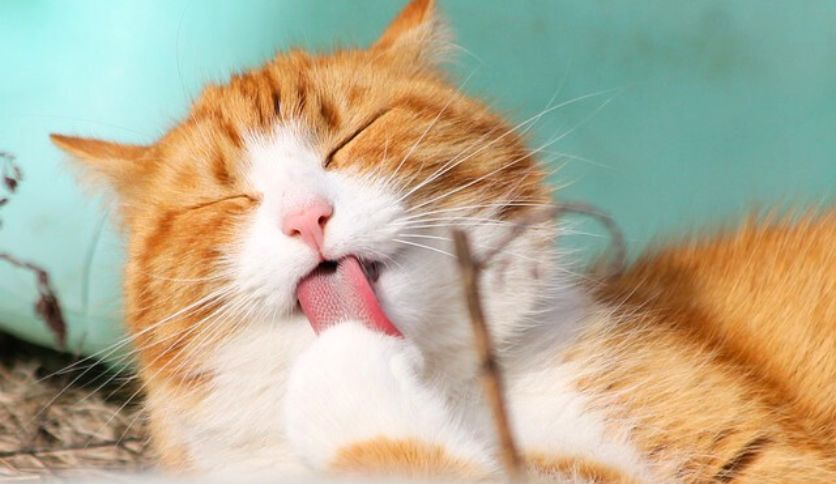Cats can have chicken broth, but it should be given in small amounts without any seasonings. Chicken broth is a popular ingredient in various dishes, including soups and stews.
This savory liquid is delicious for humans and may entice our feline friends. As responsible pet owners, we must consider the potential health implications of feeding our cats different foods. So, can cats have chicken broth?
In short, cats can consume chicken broth, but there are a few factors to consider before incorporating it into their diet. We will explore the potential benefits and risks of feeding chicken broth to cats and discuss the proper way to offer it to our furry companions.
Exploring Feline Dietary Needs
Understanding what cats can and cannot eat is crucial for their health and well-being. When it comes to chicken broth, it can be a safe addition to a cat’s diet in moderation. Chicken broth is rich in moisture, which is vital to a cat’s diet. Cats have a low thirst drive and may not consume enough water, so incorporating moist foods like broth can help keep them hydrated.
In addition to providing hydration, nutritional components in chicken broth, such as proteins and minerals, can be beneficial for cats. However, it’s important to note that not all chicken broths are created equal. Some store-bought broths may contain added ingredients like onions or garlic, which are toxic to cats.
If you choose to offer chicken broth to your feline companion, ensure it is homemade and free from seasonings and additives. This way, you can control the quality and ingredients, making it a safer option. Introduce it gradually into their diet and observe any possible adverse reactions.
The importance of moisture in a cat’s diet cannot be overstated. Cats naturally obtain moisture from their prey in the wild, and their bodies have evolved to rely on this source. However, many domesticated cats predominantly consume dry kibble containing minimal moisture content.
As obligate carnivores, cats have a low thirst drive and may not drink enough water to compensate for the lack of moisture in their food. This can lead to various health issues, including urinary tract problems and dehydration. Adding moisture-rich foods, like chicken broth, can help increase their overall water intake and promote proper hydration.
| Nutritional Component | Importance for Cats |
|---|---|
| Proteins | Cats are obligate carnivores, and proteins are essential for maintaining healthy muscles, skin, and coat. |
| Taurine | An amino acid is critical for a cat’s heart health, vision, and reproductive system. |
| Minerals (e.g., calcium, phosphorus) | Play a vital role in bone health, muscle function, and overall growth and development. |
In conclusion, chicken broth can be a safe and beneficial addition to a cat’s diet due to its moisture content and nutritional components. However, ensuring it is homemade and free from harmful ingredients is crucial. Remember to introduce it gradually and monitor your cat’s response. Prioritizing a balanced and appropriate diet is key to maintaining your feline companion’s health.
Chicken Broth Benefits For Cats

Chicken broth is a delicious treat for humans and can provide numerous benefits for cats. One of the main advantages is its ability to ensure hydration and add flavor to their diet. Cats can be notoriously picky eaters, and getting them to drink enough water can sometimes be challenging. Adding chicken broth to their food or as a standalone treat can encourage them to consume more fluids and prevent dehydration.
In addition to hydration, chicken broth contains essential vitamins and minerals beneficial for feline health. These nutrients can help support their immune system and promote overall well-being. It’s important to choose a low-sodium option to avoid any adverse effects on their health.
Another advantage of chicken broth for cats is its ability to aid digestion. It can help soothe an upset stomach, reduce inflammation, and promote healthy bowel movements. This can be particularly beneficial for cats with gastrointestinal issues or those transitioning to a new diet.
| Benefits of Chicken Broth for Cats: |
| • Provides hydration and flavor |
| • Contains essential vitamins and minerals |
| • Aids digestion and soothes upset stomach |
Preparing Safe Chicken Broth For Cats
When it comes to preparing safe chicken broth for cats, it’s essential to choose the right ingredients. Including chicken meat and vegetables such as carrots and peas can provide essential nutrients for your feline friend. However, avoiding ingredients like onions, garlic, and added spices is crucial, as they can harm cats.
The process of making cat-friendly chicken broth is relatively simple. Begin by simmering the chicken meat in water, ensuring it is fully cooked. Once cooked, remove the meat and strain the broth to remove any bones or solids. Let it cool before serving it to your cat.
Regarding portion sizes and frequency of chicken broth feeding, moderation is key. Offering small amounts of chicken broth as an occasional treat can be a flavorful addition to your cat’s diet. However, it should not be a substitute for a balanced, species-appropriate cat food.
Potential Risks Of Chicken Broth
Chicken broth is a common ingredient in many human food recipes, and you might be tempted to share some with your feline friend. However, it’s important to understand the potential risks of feeding cats chicken broth.
Sodium content in commercial broths: A danger to cats
Commercial chicken broths often contain high amounts of sodium, which can harm cats. Excessive sodium intake can lead to dehydration and strain the kidneys and heart. It’s crucial to check the label for sodium content before offering chicken broth to your cat.
Additives and preservatives: What to watch out for
Some commercial broths may contain additives and preservatives that are unsafe for cats. Ingredients like onion and garlic, commonly found in broths, can be toxic to our feline companions. Always read the ingredients list carefully to ensure no harmful substances could negatively affect your cat’s health.
Signs of an unhealthy reaction to chicken broth in cats
While some cats may tolerate chicken broth without issues, others may experience an unhealthy reaction. Watch for signs such as vomiting, diarrhea, or gastrointestinal upset after consuming broth. If you notice any of these symptoms, it’s best to avoid feeding your cat chicken broth in the future.
Alternatives To Chicken Broth
When it comes to hydrating options for cats other than chicken broth, there are several alternatives pet owners can consider. Homemade broth variations can be a nutritious option and can be made using fish or beef as the main ingredient. However, avoiding using any seasonings or additives that may harm felines is essential.
For those who prefer commercial options, there are safe choices for felines available in the market. Many pet stores offer cat-specific broths made with safe ingredients for their consumption. These commercial broths often come in various flavors to cater to different feline preferences.
It is essential to carefully read the labels and choose broths that do not contain any harmful ingredients, such as onions, garlic, or preservatives. Always consult your veterinarian before introducing new foods to your cat’s diet to ensure they suit their needs and health conditions.
Integrating Chicken Broth Into Your Cat’s Diet
Discover the benefits of incorporating chicken broth into your cat’s diet. Find out if cats can safely consume chicken broth and how to introduce it to their meals for added nutrition.
Chicken broth can be a beneficial addition to your cat’s diet, providing hydration and enticing flavors. However, it is important to be mindful of the appropriate times to offer chicken broth, recipes combining it with other cat foods, and how to monitor your cat’s health and preferences.
Chicken broth can be given to your cat as a treat or during specific situations, such as when your cat refuses to eat, recovering from an illness, or increasing water intake.
Recipes combining chicken broth with other cat foods:
You can create delicious and nutritious recipes by combining chicken broth with other cat foods. For example, mixing it with wet cat food or using it as a base for homemade cat treats.
Observe your cat’s reaction to chicken broth, ensuring they do not exhibit any adverse reactions. Pay attention to their preferences and adjust the amount of chicken broth accordingly. It is also essential to consult with your veterinarian to ensure chicken broth suits your cat’s dietary needs.
Frequently Asked Questions On Can Cats Have Chicken Broth
How Much Chicken Broth Can I Give My Cat?
A maximum of 1 or 2 tablespoons of chicken broth is usually safe for cats. However, it is best to consult your veterinarian to determine the appropriate amount based on your cat’s health and dietary needs.
What Kind Of Broth Is Safe For Cats?
Safe broth for cats includes homemade bone broth or commercially available broths explicitly made for cats. Avoid broths with added salt, onions, garlic, or other potentially harmful ingredients.
Can I Soak My Cats Food In Chicken Broth?
Yes, you can soak your cat’s food in chicken broth. It adds flavor and moisture to their meal, making it more appealing.
Can I Give My Cat Chicken Broth For Dehydration?
Yes, you can give your dehydrated cat chicken broth. It can help replenish fluids and provide some nutrition. Make sure the broth is plain, without added spices or onions. However, consult your vet first to determine the appropriate amount and frequency for your specific cat.
Conclusion
Chicken broth can be a nutritious addition to a cat’s diet, but certain precautions should be taken. Be sure to use low-sodium broth and avoid ingredients like onions and garlic. Moderation is critical, as excessive broth consumption may lead to an upset stomach or urinary issues.
Consult a veterinarian before introducing chicken broth to ensure it suits your cat’s dietary needs. Always prioritize your furry friend’s well-being when making nutritional choices.

Hello, this is Frank Swanson, the owner, and operator of Pet Info Hut. I created this website as a way to share my love of pets with the world. I have over 7 years of experience working with animals, and I have a passion for helping people care for their pets. I hope that you find my website useful and informative. Thanks for visiting!

